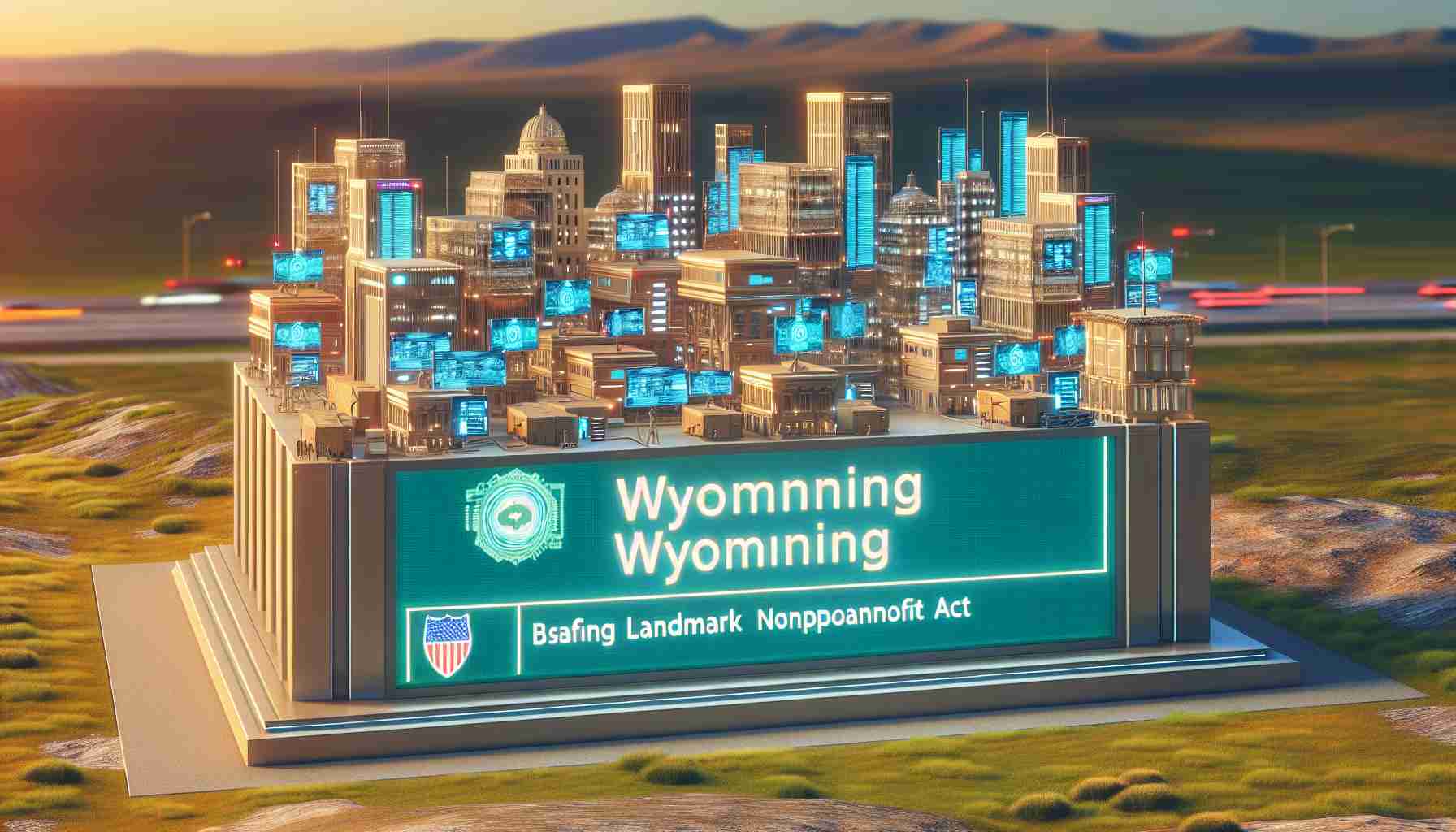Wyoming emerges as a new contender in the global blockchain arena with the recent introduction of the Decentralized Unincorporated Nonprofit Act (DUNA). This groundbreaking legislation, which comes into effect on July 1, offers a unique structure for nonprofit entities that aligns with the decentralized ethos of current major blockchain mergers and collaborations unfolding in Asia.
Distinct from traditional nonprofit regulations, Wyoming’s approach is tailored for organizations that are part of the burgeoning decentralized finance (DeFi) sector. It establishes an environment where blockchain-based non-profits, such as those recently seen in Asian markets – including the merger of platform Kaia and an Abu Dhabi foundation, as well as the congregating Artificial Superintelligence Alliance in Singapore – can find a welcoming regulatory home with a US address.
The ambition behind DUNA is to position Wyoming as a leading destination for blockchain initiatives seeking to establish or strengthen their presence in the United States. Lawmakers have crafted the law with a vision to bolster the regulatory position of blockchain operations within US jurisdiction. This innovative move aims to attract cutting-edge technology groups and position the state at the forefront of the DeFi movement, although it remains to be seen how federal policies on digital assets and decentralized finance will evolve to fully accommodate these modern organizational structures.
Key Questions and Answers:
What is the Decentralized Unincorporated Nonprofit Act (DUNA)?
The Decentralized Unincorporated Nonprofit Act is a new piece of legislation introduced in Wyoming that provides a unique legal framework for nonprofit entities that operate on a decentralized blockchain network. It recognizes the distinct nature of DeFi organizations and gives them formal standing within US jurisdiction.
Why is Wyoming introducing this legislation?
Wyoming is introducing DUNA to attract blockchain initiatives and position itself as a supportive hub for the growing DeFi sector in the United States. By doing so, it aims to become a leader in blockchain regulation and innovation, providing a welcoming legal environment for these types of organizations.
When will the DUNA come into effect?
The DUNA is scheduled to come into effect on July 1.
What are the potential challenges with integrating decentralized finance into US regulatory frameworks?
The primary challenge lies in the decentralized nature of blockchain technology and how it clashes with current centralized regulatory frameworks. The anonymity, international scope, and lack of a central control point can compote with traditional compliance and enforcement methods. Additionally, there are concerns about fraud, financial stability, and consumer protection.
Key Advantages:
– Gives legal recognition to DeFi nonprofits, which can encourage innovation and investment.
– Helps position Wyoming as a leader in blockchain technology and regulation.
– Attracts cutting-edge technology groups to the US and potentially stimulates economic growth in the region.
Key Disadvantages:
– Federal law in the United States is still unclear regarding the DeFi sector, which could complicate the interplay between state and federal regulations.
– There may be concerns about consumer protection, as the decentralized model of governance is still relatively new and untested.
Relevant fact not mentioned in the article:
Wyoming has been at the forefront of blockchain-friendly legislation in the United States for several years. They have enacted multiple laws to facilitate the growth of blockchain businesses, including the Utility Token Act, which provides clarity on the legal status of cryptocurrency tokens within the state.
Controversies or Challenges Associated with DUNA:
The implementation of DUNA may raise legal and practical challenges, considering the decentralized aspects of blockchain entities and the need for traditional legal systems to adapt. Additionally, skepticism remains regarding how these new types of non-profit organizations will integrate with more conventional entities and how they will be taxed and regulated.
Suggested Related Link:
For further information on the global landscape of blockchain technology and regulation, you can visit the website for the Chamber of Digital Commerce at digitalchamber.org.
It is essential to keep up with ongoing legislative changes and statements from the Securities and Exchange Commission (SEC) and other federal bodies regarding digital assets for comprehensive coverage of this evolving regulatory landscape. For updates and information from a federal perspective, visit the SEC’s website at sec.gov.



